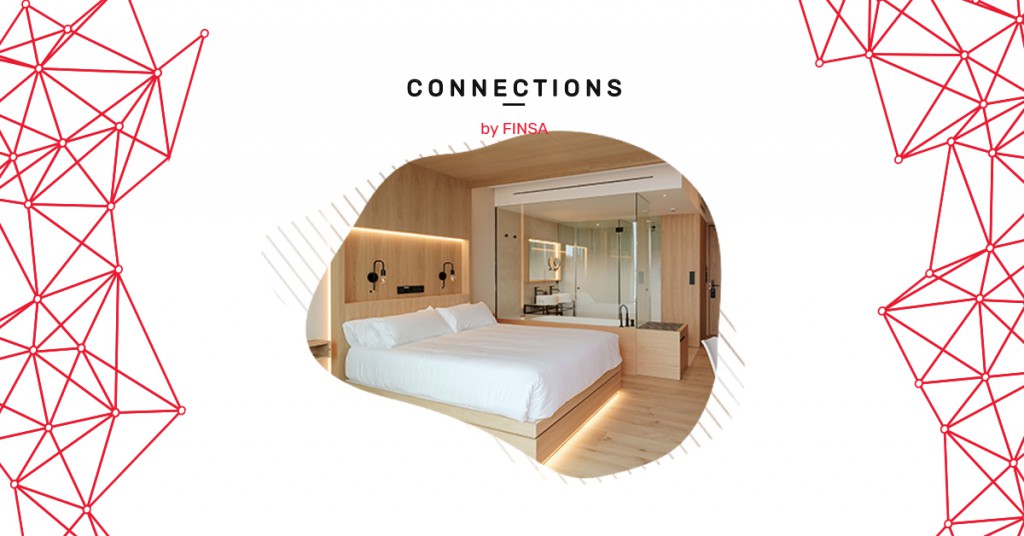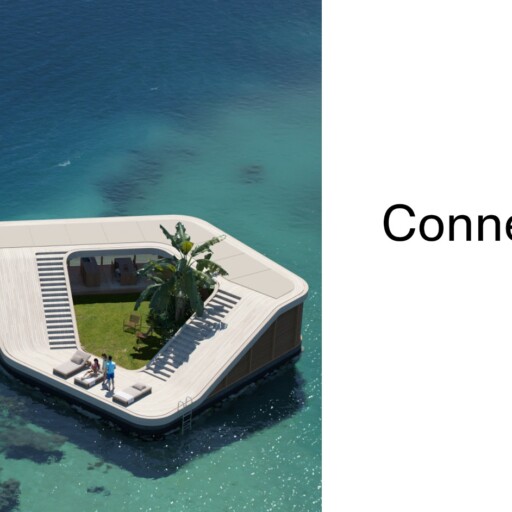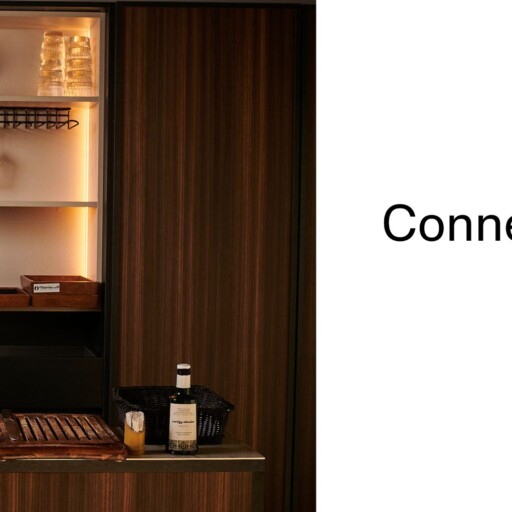Perhaps the definition of lujo (luxury) provided by the Real Academia Española – “an abundance of decoration or comforts and lush objects”- comes up a little short when applied to luxury hospitality. The sector has had to reimagine its offerings in recent times and many hotels have taken advantage of the lack of activity brought about by the global pandemic to rethink their services and make changes that were already on the horizon.

Which direction will the luxury hotel sector take? The quality of the rooms and service, including a certain level of excess in terms of decoration and design, are the mainstay. But nowadays, hotels need something more, a bonus level of excellence and uniqueness that will convince the client to choose one establishment over another.
Ver esta publicación en Instagram
According to the International Luxury Hotel Association (ILHA), the key to this reimagining in the world of hospitality and luxury is in the experiences and the so-called hedonistic luxury. That’s why 2022 is set to be the year when two-thirds of sector will focus on exactly that: offering hyper-personalised, more exclusive, and more diverse experiences aimed at a very lucrative type of traveller, namely millennials, who are “international, digital, and demanding” travellers. All you have to do is take a look at the websites of the big hotels, be they independent or part of a chain, to see it: almost all of them feature a catalogue of experiences that include unique, memorable, authentic ideas tailored to consumers’ dreams and aspirations.
Ver esta publicación en Instagram
The rise of hedonistic luxury
Experiential and hedonistic luxury is on the rise and the numbers prove it. A study by the prestigious American consulting firm Bain & Company says that, after the decline in sales in the luxury sector in 2020, the market has grown by 29% in the last year. It is now worth 283 billion euros and is set to reach 380 billion by 2025. In this world of excellence and glamour, luxury experiences offered by hotels represent almost a third of business in the global luxury industry, together with cruises and restaurants.
How is the luxury hotel being reimagined?
Let’s take a look at the conceptual and philosophical side of the issue. What is a luxury hotel? It’s not easy to provide one singular definition given that the notion of luxury itself is very subjective. People are not all alike, with different races, cultures, and backgrounds playing a part, and what is luxurious for one might not be for another and vice versa. Add to that that not all new and expensive hotels offer an amazing, unforgettable, and unmatchable experience. Being a luxury hotel isn’t just a label, nor is it all about the star rating. The concept of luxury is transversal and is about everything in the hotel.
Ver esta publicación en Instagram
For example, booking a room must be simple, and check in and check out should be quick and discreet. The room must be exactly what the guest booked, the service should be impeccable, and the staff must be pleasant and respectful at all times. If there is a problem, they must solve it quickly. The food must be excellent (some luxury hotels even feature Michelin star restaurants), and the rooms must be exceptionally well-looked after, with no detail spared: original art on the walls, a king size bed with linen or Egyptian sheets, as well as good selection of pillows. A luxury hotel also usually has fantastic health, wellbeing, and beauty facilities, such as a spa, pools, a sauna, and a gym, as well as a great location, be it in a city, on the beach, or in the middle of the jungle.
What is the hedonistic luxury guest like?
There are lots of different types of guests that fit this description. Nevertheless, they all have one thing in common: high standards. They travel frequently and spend a lot of money, but what they want is to stay at a hotel that isn’t focused so much on formalities and ostentation as it is on providing a complete and exceptional experience unlike any other. They want to feel unique and part of something special rather than just another name on the bookings list. They are looking to have the stay of a lifetime, something unforgettable that makes them say “wow!” because it surprises them, it excites them and because it meets or even exceeds their expectations.
The Waldorf Astoria in New York has more than 360,000 bees in hives on its terrace, which allows it to make its own honey, which they then use in their kitchens and spa, and belongs to perfume and cosmetics company Guerlain. They also let clients participate in the beekeeping if they wish while they are staying at the hotel.
Ver esta publicación en Instagram
The Trivial Pursuit Hotel in the outskirts of Moscow and is the first in the world where you pay with your knowledge rather than your money. The result of a collaboration between toy company Hasbro and ad agency Leo Burnett, it has a pool, a sauna, a fireplace, a barbecue, and just one rule: the more the guest knows and the more correct answers they provide, the more comfortable and luxurious their experience will be.
Sometimes a good library with books in several different languages and a huge collection of movies is more than enough to provide a luxurious stay. Or a concierge that knows more than Google and Wikipedia combined or that can get you tickets to the best sports events, concerts, and music festivals or an appointment at the best tattoo parlour in the area.
Ver esta publicación en Instagram
By air, land, and sea
Of course, there are also some very expensive, very luxurious experiences out there. Three prestigious hotel chain have decided to take their hotels to the next level and offer exclusive and unique experiences. For example, the Four Seasons has taken their guests to the skies with their new Four Seasons Private Jet: starting at 137,000 euros per person, this air cruise takes 48 passengers to different places for 25 days.
Then there’s Belmond, who have chosen luxury to offer luxury on rails. Their well-known and very exclusive train itineraries include stops in cities such as Paris, Venice, London, Istanbul, Amsterdam, Rome, Florence, and Geneva. There are art deco-style suites with double beds, private bathrooms, and a butler on call 24 hours a day. They even have a line of ultraluxury travel accessories called Steam Dream. Last year, every single one of the routes sold out.
Ver esta publicación en Instagram
The Ritz-Carlton has built a super yacht that will set sail in 2023. This floating hotel, which was built in Spain at Hijos de J. Barreras shipyard in Vigo and designed by Swedish studio Tillberg Design, is called Evrima (‘discovery’ in Greek). It can carry 298 passengers in its 149 suites, each of which has its own private terrace, and the ship’s kitchen is led by Sven Elverfeld (@sven.elverfeld), a German chef with three Michelin stars to his name. The seven- to ten-day drip costs around 5,000 euros per person. The Evrima is the first of three yacht hotels that the chain plans to build.
Ver esta publicación en Instagram
Hedonistic luxury on the moon
Luxury hotels are starting to get very creative with the experiences they offer. Canadian company Moon World Resorts has invested 4.4 billion euros in a five-star hotel in Las Vegas, which will be a paradise of modern excess contained in a 224-metre-tall and 198-metre-wide replica of the Moon. Guests will be able to walk on the surface of the artificial satellite or drive a lunar vehicle and feel like they are in space while having “an authentic, memorable experience that will change their life”. The hotel’s slogan says it all: “12 people have been there, 7 billion want to visit”.
Ver esta publicación en Instagram
With the promising future of hedonistic luxury and experiences on the horizon, alliances within the sector are already being made. That’s exactly what the Marriott group has done with Quintaessentially, the leading luxury concierge company in the world. The collaboration will allow them to offer a selection of unique adventures and immersive experiences of every kind. The starting price is 13,000 euros for two people.
Ver esta publicación en Instagram
But that’s the price you have to pay to travel to and get a private tour of the Sistine Chapel, make your own guitar in Nashville, go horse riding at the Agua Caliente Native American reserve, explore caves with a geologist in the Sonora desert, attend classes led by a graffiti artist, go mountain biking or surf with professionals in California, go hot air ballooning over the Turkish region of Cappadocia, enjoy a yoga class in the Dolomites, learn to cook regional food with a private chef in San Sebastian, or go biking through the vineyards of the Rioja Alavesa.
Ver esta publicación en Instagram
“Dreamketing”
All of these trip ideas and adventures are the perfect example of what is known as dreamketing (‘dream marketing’), a term coined by Gian Luigi Longinotti Buitone, the former director of Ferrari and Ralph Lauren and the author of the bestselling book Selling dreams: how to make any product irresistible. He says you must let clients have an experience, fulfil a wish, or make a dream a reality, whether its new or old, big or small. Big fashion and design brands such as Armani, Gucci, Versace, and Bulgari are following this advice by investing in hotels, restaurants, cafes, and spas where their clients can choose the life they want to live by attending themed tea drinking sessions, cooking or art classes, or going shopping with a personal shopper.
Ver esta publicación en Instagram
The LVMH group has also jumped on this bandwagon by creating the Maisons Cheval Blanc, a set of villas and hotels in Paris, the Alps, and the Maldives, among other destinations, that are true temples of refinement where guests, including families, are invited to “discover the new art of emotion”.
As we all know, good hotels never go out of style.




